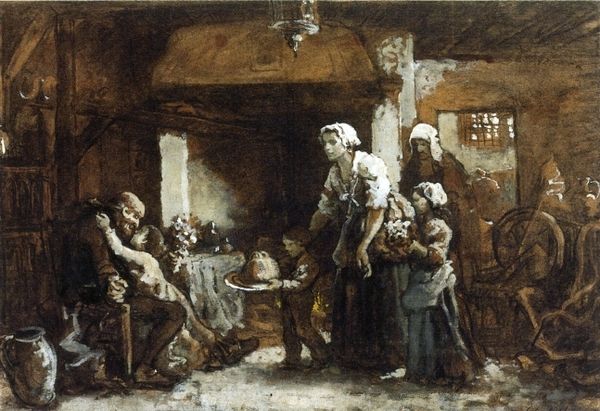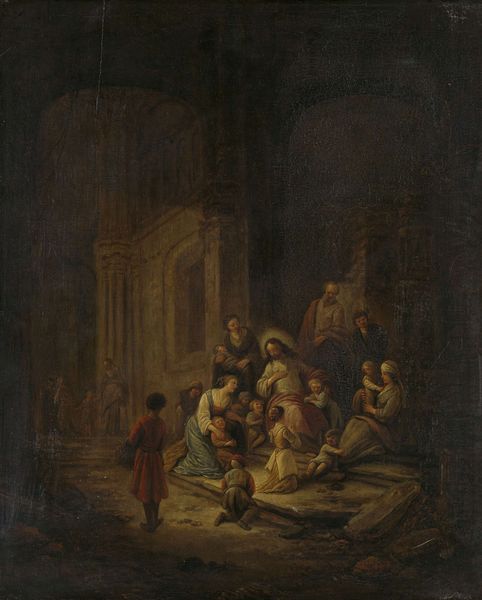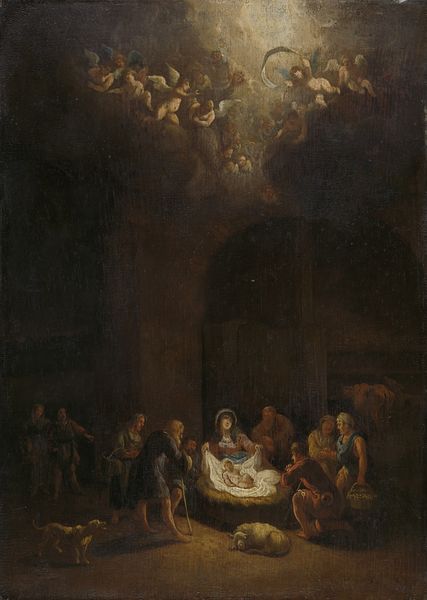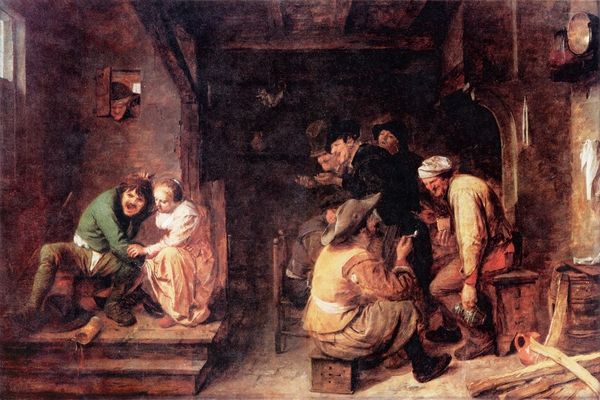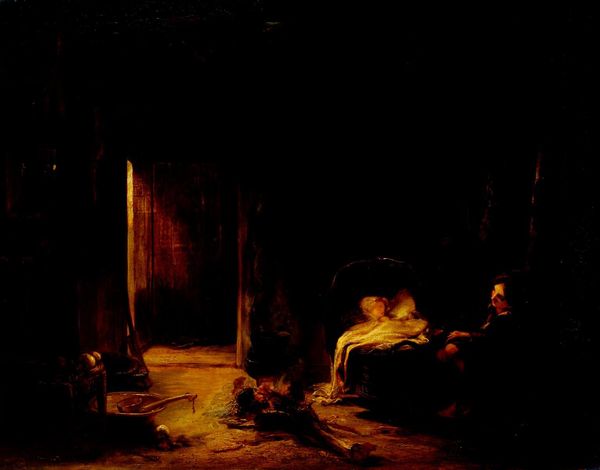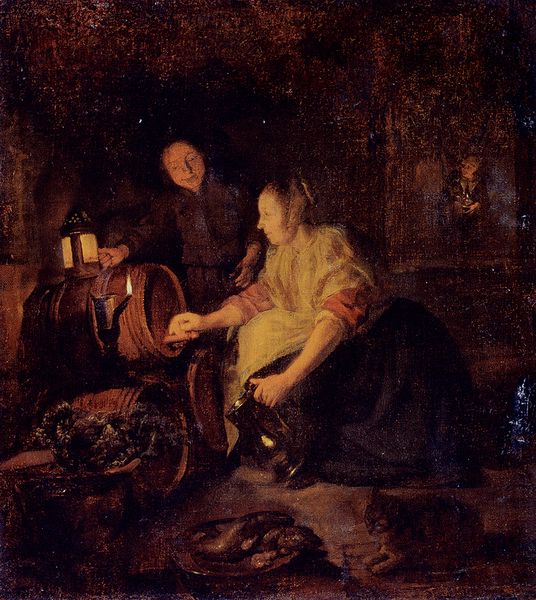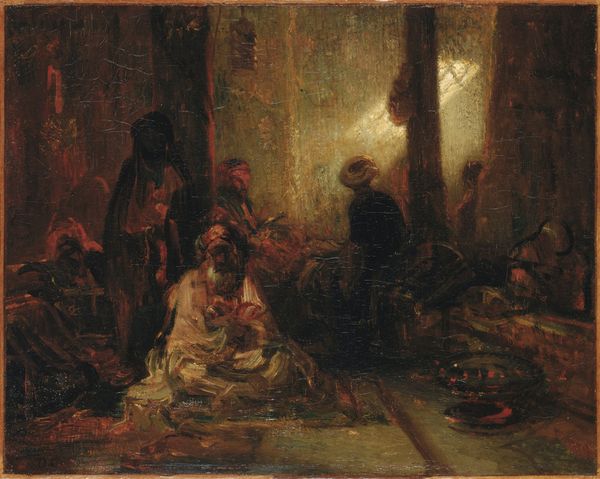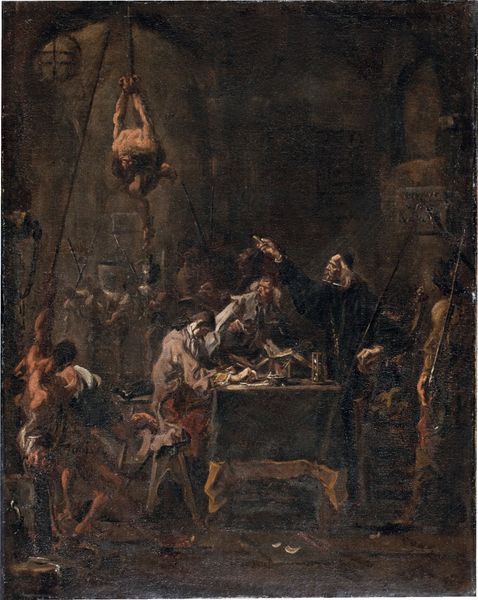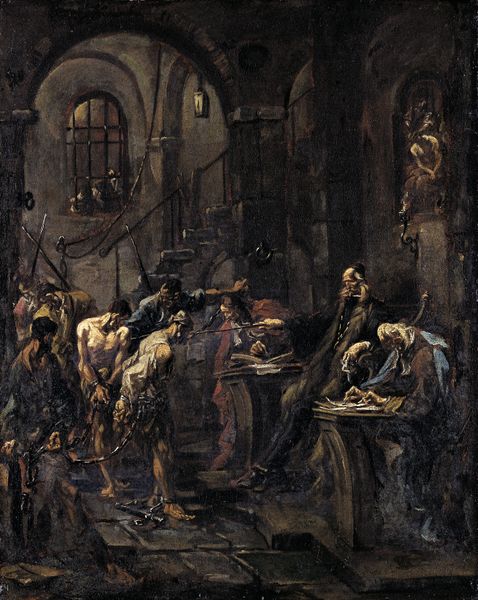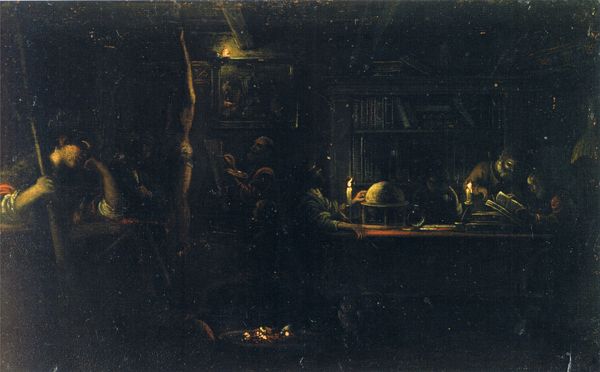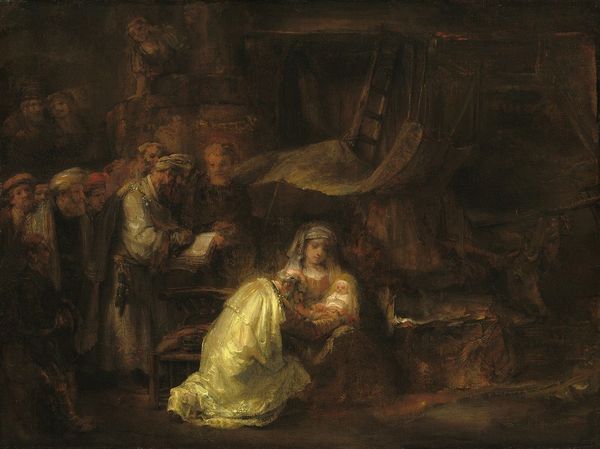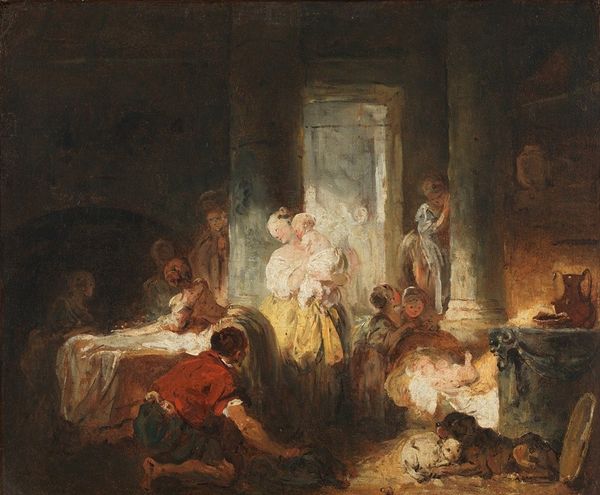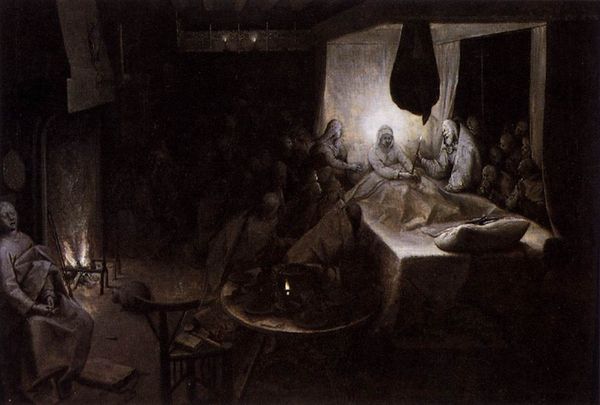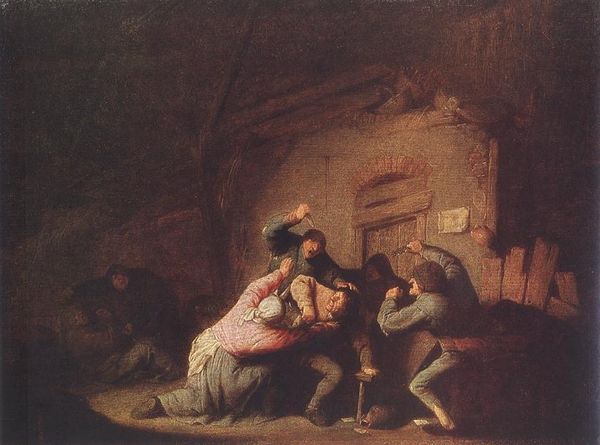
painting, oil-paint
#
narrative-art
#
baroque
#
dutch-golden-age
#
painting
#
oil-paint
#
figuration
#
chiaroscuro
#
history-painting
Copyright: Public domain
Rembrandt van Rijn rendered this scene of the Parable of the Laborers in the Vineyard with oil on canvas, capturing a biblical moment laden with social and religious meaning. Central is the motif of payment, a visual embodiment of divine justice and earthly reward. The act of counting coins mirrors countless other depictions of commerce and exchange throughout art history—from ancient marketplaces to Renaissance banking scenes. Note the equal distribution of coins to laborers who toiled for different durations. This challenges our ingrained notions of fairness and equity. Consider how this scene, with its stark contrasts of light and shadow, elicits a profound emotional response. It evokes empathy for the human condition and questions the very nature of divine judgment. The motif of equal pay, despite unequal labor, is a recurring theme throughout history, embodying both utopian ideals and social anxieties. It resurfaces in various guises, from socialist manifestos to contemporary debates about income inequality, perpetually sparking dialogue and dissent. The symbol’s journey reflects our enduring quest to reconcile justice with the complexities of human experience.
Comments
No comments
Be the first to comment and join the conversation on the ultimate creative platform.
